Chernobyl.3828 is a ukrainien film of genre Documentary
Chernobyl.3828 (2011)

If you like this film, let us know!
Length 30minutes
OriginUkraine
Themes Environmental films, Documentary films about environmental issues, Documentary films about historical events, Documentary films about nuclear technology, Documentary films about technology, Disaster films
Rating74%










Chornobyl.3828 or Chernobyl.3828 is a 2011 Ukrainian documentary film about the Chernobyl disaster. Directed by Sergei Zabolotnyy, it is dedicated to the "liquidators" who were involved in cleaning the most dangerous areas of the plant roof, the "M" zone. The film is named for the 3,828 people who worked in this area.
Synopsis
Twenty-five years have passed since Valeriy Starodumov worked as a dosimeter scout in September 1986. Valeriy worked at the epicenter of the explosion, the reactor's operation area, which was the most radioactive part of the site. The protagonist, a direct participant in the operation, went to the roof himself and brought people there after a failed attempt to clear the area with robots. At the government level, it was decided to assign soldiers and cadets of military schools to the task of cleaning the roofs. Unique pictures of the events of 1986 are widely used in the film. "Chernobyl.3828" is dedicated to people who saved the world from the radioactive contamination at the cost of their health and life.Comments
Leave comment :
Suggestions of similar film to Chernobyl.3828
There are 13551 with the same cinematographic genres (including 580 with exactly the same 2 genres than Chernobyl.3828), 4136 films with the same themes (including 8 films with the same 6 themes than Chernobyl.3828), to have finally 70 suggestions of similar films.If you liked Chernobyl.3828, you will probably like those similar films :

The Russian Woodpecker (2015)
, 1h20Origin USA
Genres Documentary, Historical
Themes Environmental films, Documentary films about environmental issues, Documentary films about historical events, Documentary films about nuclear technology, Documentary films about technology, Disaster films
Rating66%





The films focuses on Fedor Alexandrovich's research into the cause of the Chernobyl nuclear disaster in Ukraine and its potential connection to a Soviet Cold War-era structure, the Duga over-the-horizon radio antenna. His investigation is interrupted and impacted by the 2014 EuroMaidan uprising, which eventually led to the ouster of the pro-Russian president Viktor Yanukovych.
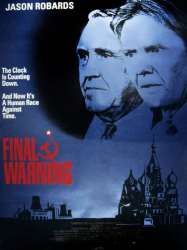
Chernobyl: The Final Warning (1991)
, 1h35Directed by Anthony Page
Origin USA
Genres Drama, Documentary, Historical
Themes Environmental films, Documentary films about environmental issues, Documentary films about historical events, Documentary films about nuclear technology, Documentary films about technology
Actors Jon Voight, Jason Robards, Sammi Davis, Annette Crosbie, Ian McDiarmid, Vincent Riotta
Rating61%





Based on a true account of events, the plot interweaves the stories of a fireman at the nuclear power plant, his pregnant wife, the government officials whose policies helped and hindered rescue efforts and America's Dr. Robert Gale (Jon Voight), who led the international medical team that helped treat survivors of the disaster. Robert Gale published the original account of his experiences under the same title in 1988 with Thomas Hauser; it was adapted by Ernest Kinoy for the screenplay.
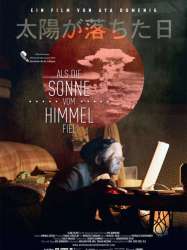
The Day the Sun Fell (2014)
, 1h18Genres Documentary, Historical
Themes Environmental films, Seafaring films, Transport films, Aviation films, Documentary films about environmental issues, Documentary films about war, Documentary films about historical events, Documentary films about nuclear technology, Documentary films about technology, Political films, Documentary films about World War II
Rating75%






The Atomic Cafe (1982)
, 1h26Directed by Kevin Rafferty
Origin USA
Genres Documentary, Historical
Themes Environmental films, Documentary films about environmental issues, Documentary films about war, Documentary films about historical events, Documentary films about nuclear technology, Documentary films about technology, Political films
Rating75%





The film covers the beginnings of the era of nuclear warfare, created from a broad range of archival film from the 1940s, 1950s and early 1960s - including newsreel clips, television news footage, U.S. government-produced films (including military training films), advertisements, television and radio programs. News footage reflected the prevailing understandings of the media and public.
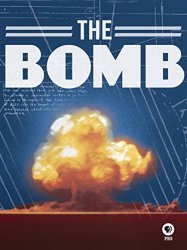
The Bomb (2015)
Genres Documentary, Historical
Themes Environmental films, Documentary films about environmental issues, Documentary films about war, Documentary films about historical events, Documentary films about nuclear technology, Documentary films about technology
Actors Jonathan Adams (acteur britannique)
Rating75%





Comment vivre avec une invention capable de détruire la planète ? S'appuyant sur de spectaculaires archives récemment restaurées et rendues publiques, une captivante plongée dans l'histoire de la bombe atomique, de sa conception à la manière dont elle a changé le monde.
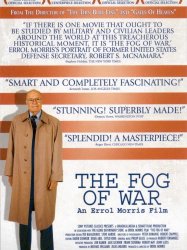
The Fog of War (2003)
, 1h35Directed by Errol Morris
Origin USA
Genres War, Documentary, Historical
Themes Environmental films, Documentary films about environmental issues, Documentary films about war, Documentary films about historical events, Documentary films about nuclear technology, Documentary films about technology, Political films
Actors Errol Morris
Rating80%





The overall plot of the film focuses on the interviews of former Secretary of defense, Robert McNamara, who was interviewed for about 20 hours by the director of the documentary, Errol Morris, through a special device called the "Interrotron" which projects images of interviewer and interviewee on two-way mirrors in front of their respective cameras so each appears to be talking directly to the other. Use of this device is intended to convey actual interaction with each other and direct eye contact with the viewer.

The Day After Trinity (1981)
, 1h28Origin USA
Genres Documentary, Historical
Themes Environmental films, Documentary films about environmental issues, Documentary films about war, Documentary films about historical events, Documentary films about nuclear technology, Documentary films about technology
Actors Paul Frees
Rating77%





Ce film documentaire a été réalisé et produit par John Else en association avec la chaîne de télévision publique KTEH de San José (Californie). Le film raconte l'histoire de Robert Oppenheimer (1904–1967), le physicien qui joua un rôle prépondérant dans le développement de la première bombe atomique, testée en juillet 1945 au centre d'essai nucléaire de Trinity au Nouveau-Mexique.
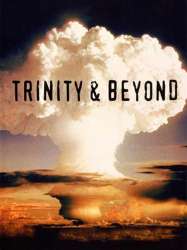 , 1h33
, 1h33Origin USA
Genres War, Documentary, Historical
Themes Environmental films, Documentary films about environmental issues, Documentary films about war, Documentary films about historical events, Documentary films about nuclear technology, Documentary films about technology
Actors William Shatner, Reed Hadley, Marilyn Monroe
Rating78%





"Trinity and Beyond" est un documentaire présentant l'histoire du développement des armes nucléaires et de leurs essais couvrant la période 1945-1963. Le film, accompagné de la voix de William Shatner et d'une musique originale exécutée par l'Orchestre Symphonique de Moscou, révèle des images appartenant au gouvernement.

Black Wind, White Land (1993)
, 53minutesGenres Documentary
Themes Environmental films, Documentary films about environmental issues, Documentary films about historical events, Documentary films about nuclear technology, Documentary films about technology, Disaster films

Genres Documentary, Historical
Themes Films based on the September 11 attacks, Films about religion, Films about terrorism, Transport films, Aviation films, Documentary films about law, Documentary films about war, Documentary films about historical events, Documentary films about politics, Documentary films about religion, Documentary films about health care, Documentary films about technology, Documentary films about terrorism, Political films, Films about Islam, Disaster films, Films about aviation accidents or incidents, Films about hijackings
Actors Steve Buscemi
Rating82%





 Connection
Connection